Collection: MSCs
Human MSC - Mesenchymal Stem Cells (MSCs)
At New Regeneration, we use a special type of perinatal cell, Mesenchymal stem cells that are derived from the Tissue and Wharton’s Jelly in umbilical cords.
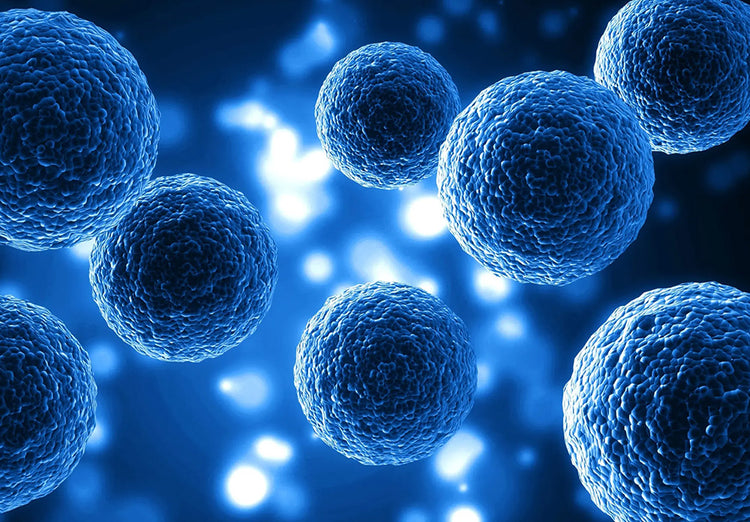
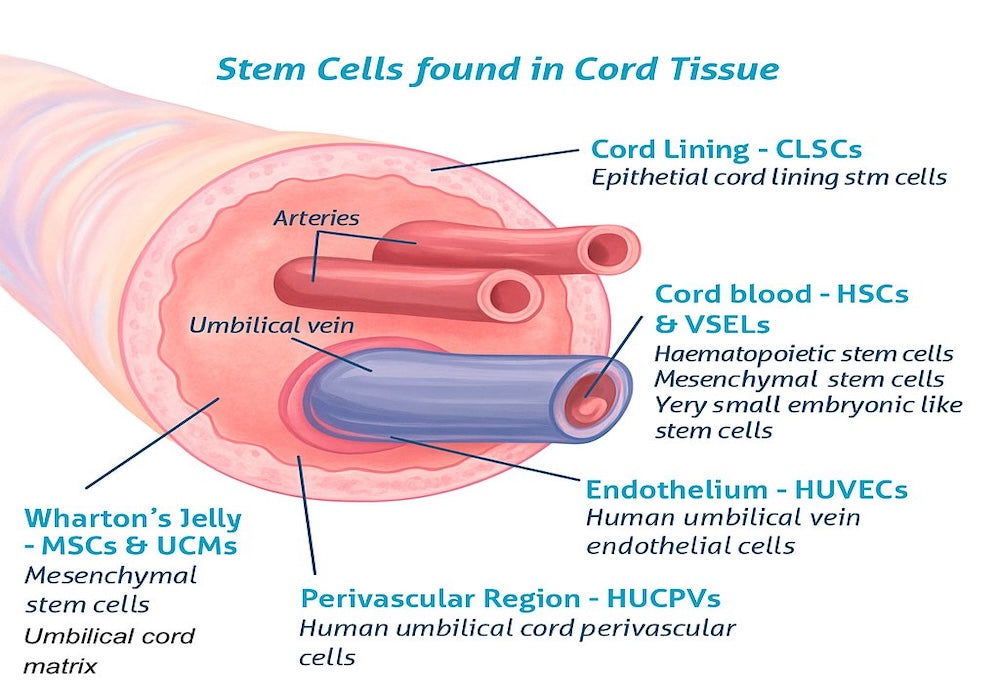
Cord Tissue Cells:
Mesenchymal stem cells (MSCs) from cord tissue are multipotent and can become many different types of cells, including cartilage, bone, fat, skin, and connective tissue. MSCs show promise in treating serious wounds, burns, Rheumatoid Arthritis, diabetes, Autism, Alzheimer’s, heart disease, liver disease, stroke, and spinal cord injuries, to name a few. MSCs are especially unique because they can regenerate, allowing for multiple treatments. In addition, MSCs can give signals to other cells to start healing chronic wounds or to prevent harmful inflammation caused by autoimmune, immune-related, and neurodegenerative conditions such as Crohn’s disease, Parkinson’s disease, and ALS. These versatile properties have the potential to make MSCs help us overcome some of the most difficult-to-treat medical conditions.
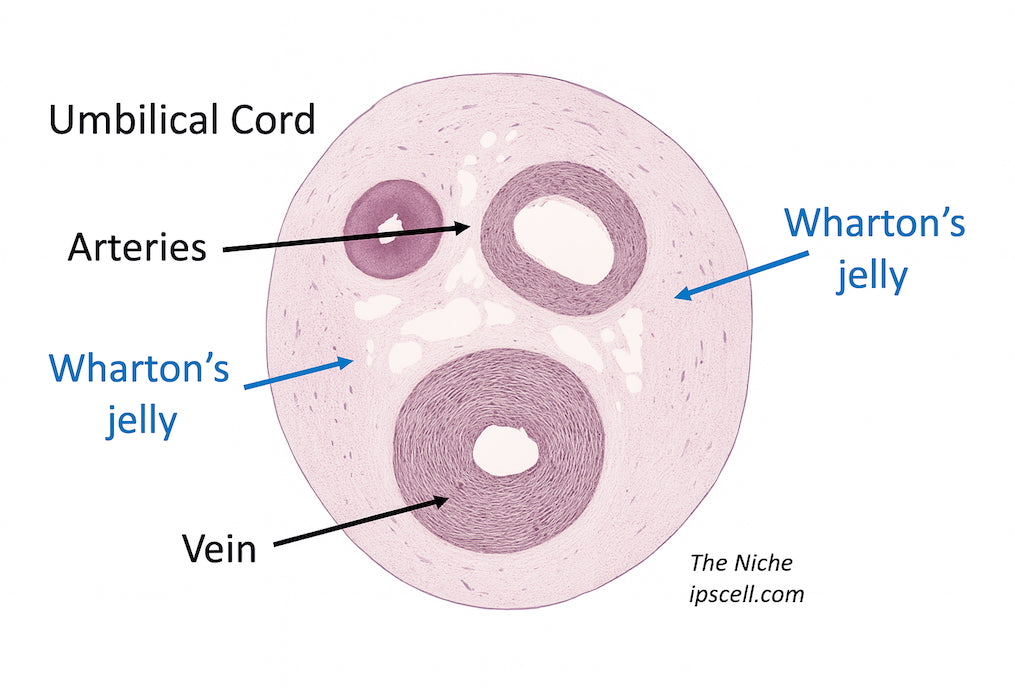
Wharton’s Jelly:
Wharton’s jelly is the mucous connective tissue within the umbilical cord. It contains an abundance of precursor MSCs that are ideally suited for use in cartilage repair. They have been shown to have the desired capacity for proliferation, differentiation, and release of trophic factors to provide cell-based cartilage restoration. Although allogeneic in nature, these cells stimulate little or no host immune response and can be stored for long periods while maintaining viability.
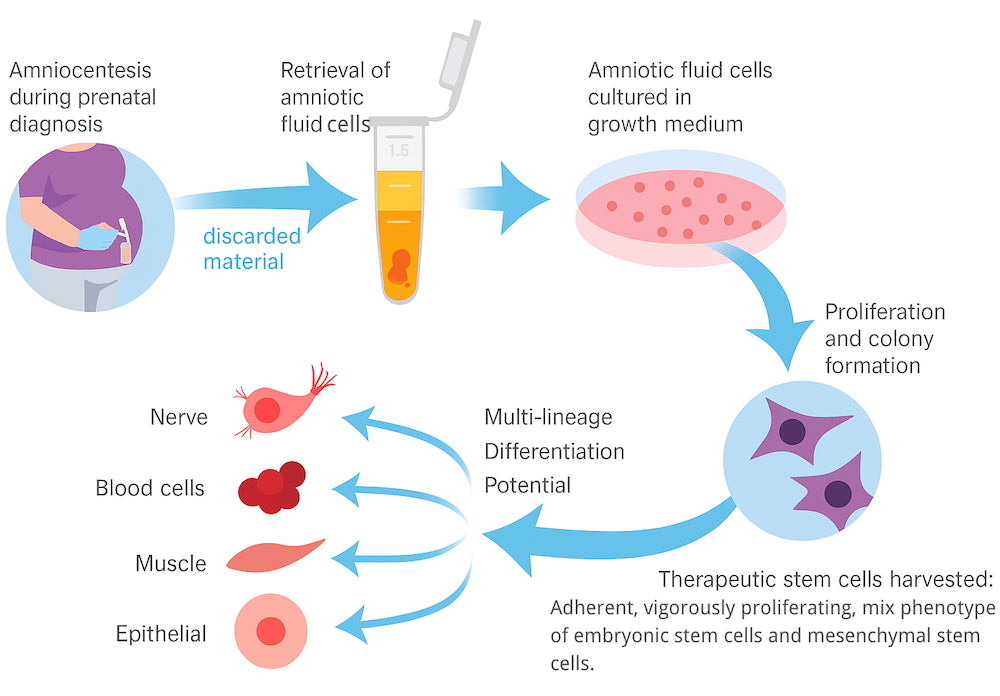
Amniotic fluid Stem Cells:
Amniotic fluid features concentrations of some of the most, including MSCs, proteins, cytokines and other important compounds. Studies have shown this fluid to be naturally regenerative with inflammation reducing properties. It may even help reduce the appearance of scars for some patients. It is important to note, these cells come from the amniotic sac and are not part of the embryo.
Amniotic stem cell therapy is a very safe and effective treatment. There is no risk of rejection in the patient. The fluid contains the growth factors that help to stimulate tissue growth and stem cell activity while reducing inflammation. It also contains hyaluronic acid, which acts as a lubricant and promotes cartilage growth.
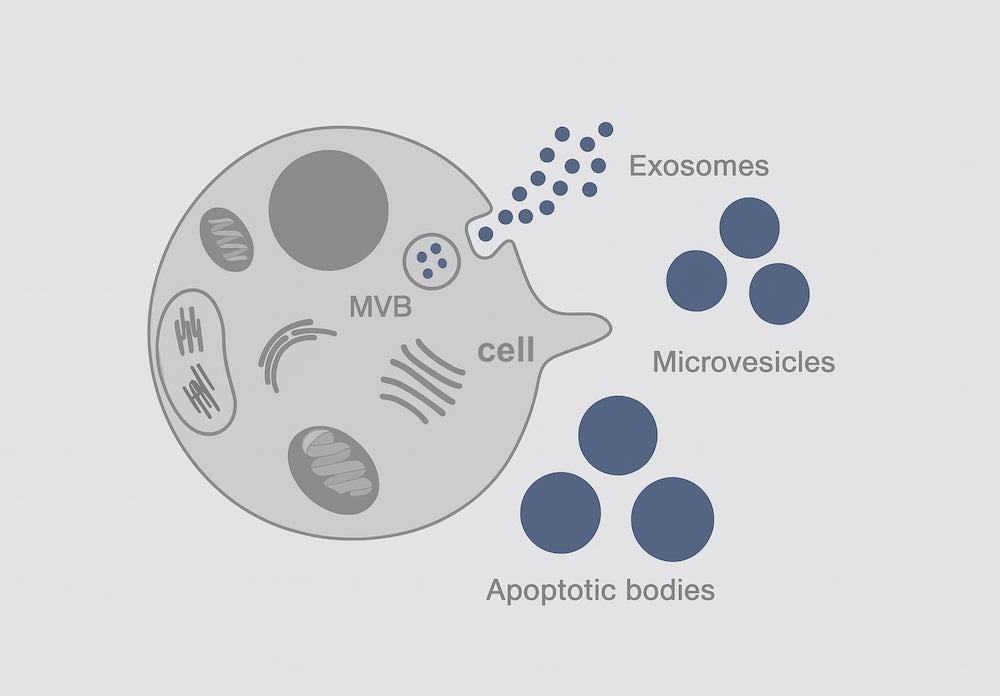
Exosomes:
The umbilical cord also contains exosomes, nanometer sized vesicles released by every cell in the body. Exosomes are thought to be a medium for cell communication and intercellular transport. They play an important role in the transmission of proteins, lipids, mRNAs, , and DNA. The exosomes released by regenerative cells such as stem cells, are potent drivers of healing and repair. Umbilical cord derived exosomes have been found to activate several signaling pathways conducive in wound healing, cell growth, and collagen synthesis. Studies have also shown that these exosomes also contain growth factors associated with skin rejuvenation.
Contact us today and Speak with a knowledgeable Wellness Expert, our medical professionals can help you.
